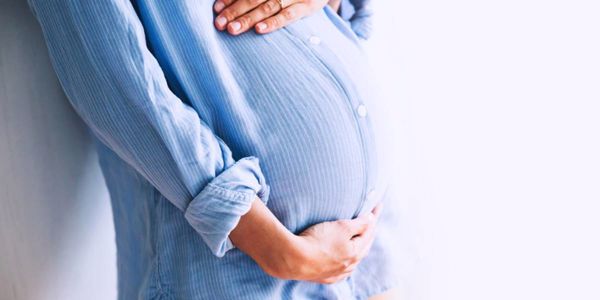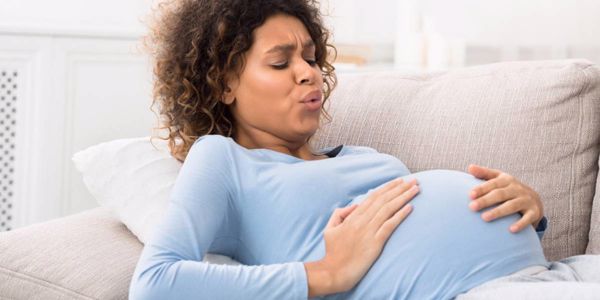As I sit here writing this post, pregnant with baby number 3 and breathing through a few ‘Braxton hicks’ (practise contractions!) I find I’m asking myself this very question….what DO contractions feel like?? Is this really just a practice, or should I be more worried? How bad was it really?? (I’m currently recovering from covid whilst pregnant, so I am aware that pre-term labour can be a risk.)
You see, I’ve already had two babies via a vaginal birth so I definitely know the answer, but Mother Nature has this REALLY clever way of glazing over the memory if you’re in the market for more babies. I remember coming away from both labours insistent that I would never, ever forget...and never, ever do it again! I couldn’t watch TV programmes of people in labour (it literally made me feel physical pain!) and if I do really think about it as a memory, I can almost feel how it all felt.
A switch does tend to just flick one day though, you go from ‘never again’ to ‘hey, I survived and look what I got out of it!’ That is until that first contraction hits you again and it all comes flooding back…
For transparency, I’m going to give you some details of both of my previous labours which are relevant to answering this question:
1. I had false start tightenings/ contractions for weeks before actual labour
2. Both of my babies were two weeks late and I was induced via a pessary only which kickstarted labour quickly. This MAY have made my contractions stronger. I have no comparison to say for certain
3. I had no pain relief with my first labour, and just gas and air with my second labour…ie, I definitely FELT those contractions.
Your Baby Club and Center Parcs are giving you a chance to win a family break in a Woodland Lodge at a UK Center Parcs village of your choice.
What do early contractions feel like?
Later on in your pregnancy, you may start to get tightenings of your tummy/uterus – you will feel and probably notice too, that your belly will go quite hard and you may have to stop and breathe through until it passes. Braxton Hicks are practice contractions helping your body to get ready, they can feel a bit uncomfortable but not painful and not regular. If your tightenings start to come regularly and become painful where you are unable to talk, then this may be the early stages of actual labour.
Early labour pains can feel like bad period pains and cramps and you may have the urge to rush to the toilet.
As labour progresses, the contractions will feel much more uncomfortable and you will have to breathe through them or even ask for pain relief in order to cope with the sensations.
Where do you feel labour contractions?
Now, this is the bit that got me! I assumed that I would only feel the contractions in my uterus/belly as it tightened to push the baby down to the birth canal. No. The contractions are also there to help the cervix efface. The cervix is inside your vagina. You may feel contraction pains in your uterus, back, pelvis, vagina, vulva, thighs and bottom. In fact, the pressure in the rectum/bottom area as your baby pushes down into your birth canal can often be one of the most painful and confusing parts of labour contractions! So many women mistake this feeling for needing to go to the toilet, but it is actually just your baby’s head pushing down.
One of my very first ‘real’ contractions with my first child was actually in the vaginal/urethral area. I was aware I needed to urinate and so went to the toilet, but as I’d start to ‘go’, my body would go into a painful spasm which I had to breathe through before I could continue. I had no idea at the time, but these were actually the start of my contractions, and labour had begun! (and progressed rather rapidly after that!)
Your contractions may be so intense and painful that they make you sick. This is really common – I was physically sick during both of my labours once the contractions ramped up from regular contractions to more painful pressure feelings.
I have had both a water birth and an active birth on a bed. The water definitely helps with the pressure and pain of contractions and labour, but it does mean that the midwife is not able to intervene or help during the pushing stage. With my second baby, I used the birth pool for pain relief and then got out once I knew things were progressing quickly!
Obviously, everyone experiences labour differently – but if you are close to term and you start to get regular contractions, tightenings, pains, spasms or cramps anywhere in between the top of your uterus and your lower thighs, which require you to stop what you’re doing and breathe, then congratulations! You may soon be about to meet your baby x






